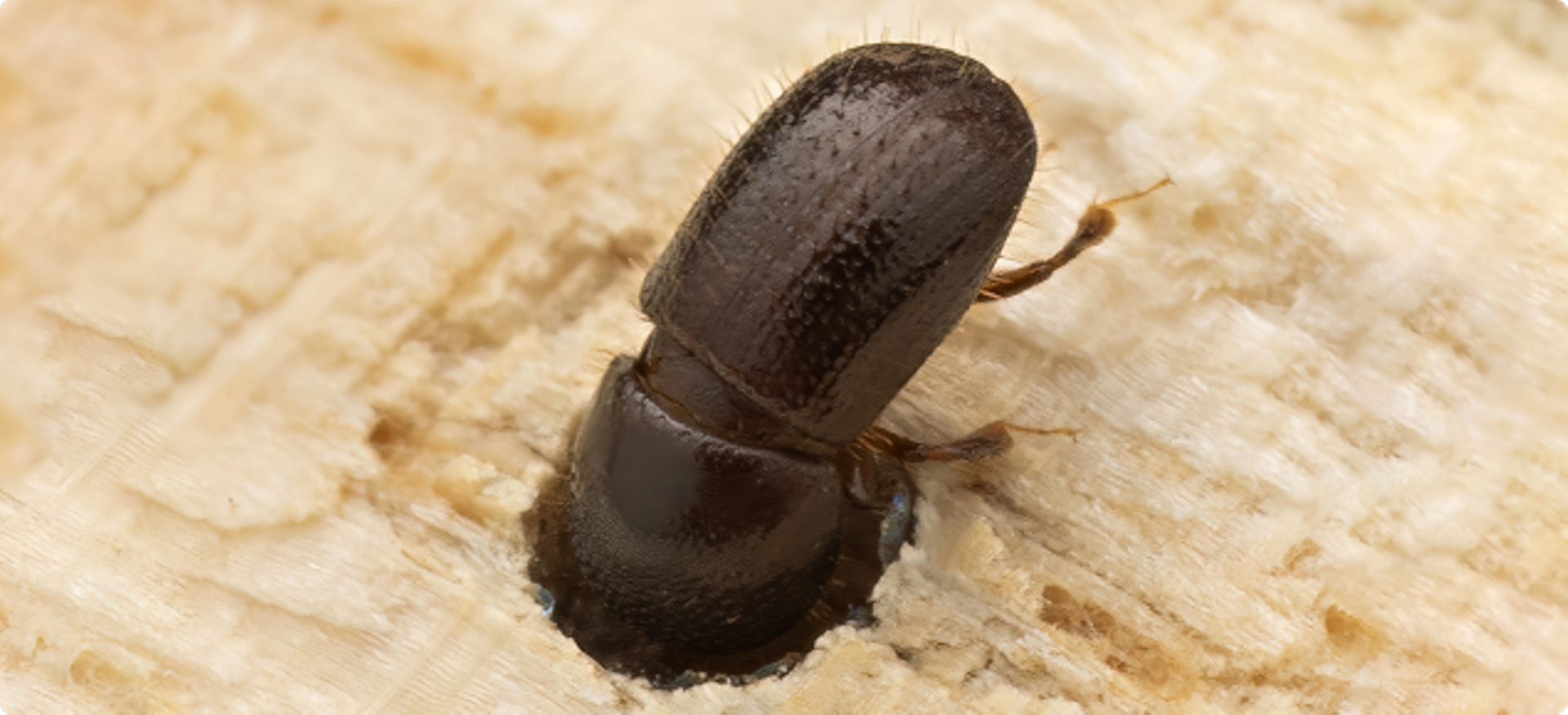
Polyphagous shot-hole borer - update December 2024
The Polyphagous Shot-Hole Borer (PSHB) has recently been detected in a Port Jackson Fig Tree (Ficus rubiginosa) located on Lenori Rd, Gooseberry Hill.
The detection was confirmed on 4 December 2024. The Department of Primary Industries and Regional Development (DPIRD) has recommended the removal of this infected tree, with the City of Kalamunda granting permission for DPIRD to carry out the removal at their own cost.
The City continues to work closely with DPIRD as part of the PSHB National Eradication Program. DPIRD, the lead agency, is responsible for safely removing and disposing of infected materials to prevent further spread.
The City is currently within PSHB Quarantine Zone B, a designated area where fewer or no infestations have been found. This zone is critical for early detection and intervention, creating a protective buffer between heavily infested areas and the rest of Western Australia. Heightened surveillance is underway to detect and manage new infestations quickly and effectively, helping to safeguard our natural environment and agricultural industries.
Community vigilance is vital in the fight against PSHB. Keep an eye on trees in your area and look for signs of infestation, such as:
- Small entry or exit holes in tree trunks or branches.
- Sawdust-like material at the base of trees.
- Branch dieback or overall decline in tree health.
If you notice any unusual tree damage, report it immediately to DPIRD. Early detection and reporting can make a significant difference in preventing the spread of this pest.
For more information about PSHB and how you can help, contact DPIRD by phone on 9368 3080, email padis@dpird.wa.gov.au or visit the DPIRD website.

Polyphagous shot-hole borer - update December 2024
The Polyphagous Shot-Hole Borer (PSHB) has recently been detected in a Port Jackson Fig Tree (Ficus rubiginosa) located on Lenori Rd, Gooseberry Hill.
The detection was confirmed on 4 December 2024. The Department of Primary Industries and Regional Development (DPIRD) has recommended the removal of this infected tree, with the City of Kalamunda granting permission for DPIRD to carry out the removal at their own cost.
The City continues to work closely with DPIRD as part of the PSHB National Eradication Program. DPIRD, the lead agency, is responsible for safely removing and disposing of infected materials to prevent further spread.
The City is currently within PSHB Quarantine Zone B, a designated area where fewer or no infestations have been found. This zone is critical for early detection and intervention, creating a protective buffer between heavily infested areas and the rest of Western Australia. Heightened surveillance is underway to detect and manage new infestations quickly and effectively, helping to safeguard our natural environment and agricultural industries.
Community vigilance is vital in the fight against PSHB. Keep an eye on trees in your area and look for signs of infestation, such as:
- Small entry or exit holes in tree trunks or branches.
- Sawdust-like material at the base of trees.
- Branch dieback or overall decline in tree health.
If you notice any unusual tree damage, report it immediately to DPIRD. Early detection and reporting can make a significant difference in preventing the spread of this pest.
For more information about PSHB and how you can help, contact DPIRD by phone on 9368 3080, email padis@dpird.wa.gov.au or visit the DPIRD website.
Keep in touch
Subscribe to our regular newsletter and receive City related and events direct to your inbox.
We respectfully acknowledge the Traditional Owners, the Whadjuk Noongar People as the Custodians of this land. We also pay respect to all Aboriginal community Elders, past, present and future who have and continue to reside in the area and have been an integral part of the history of this region.
